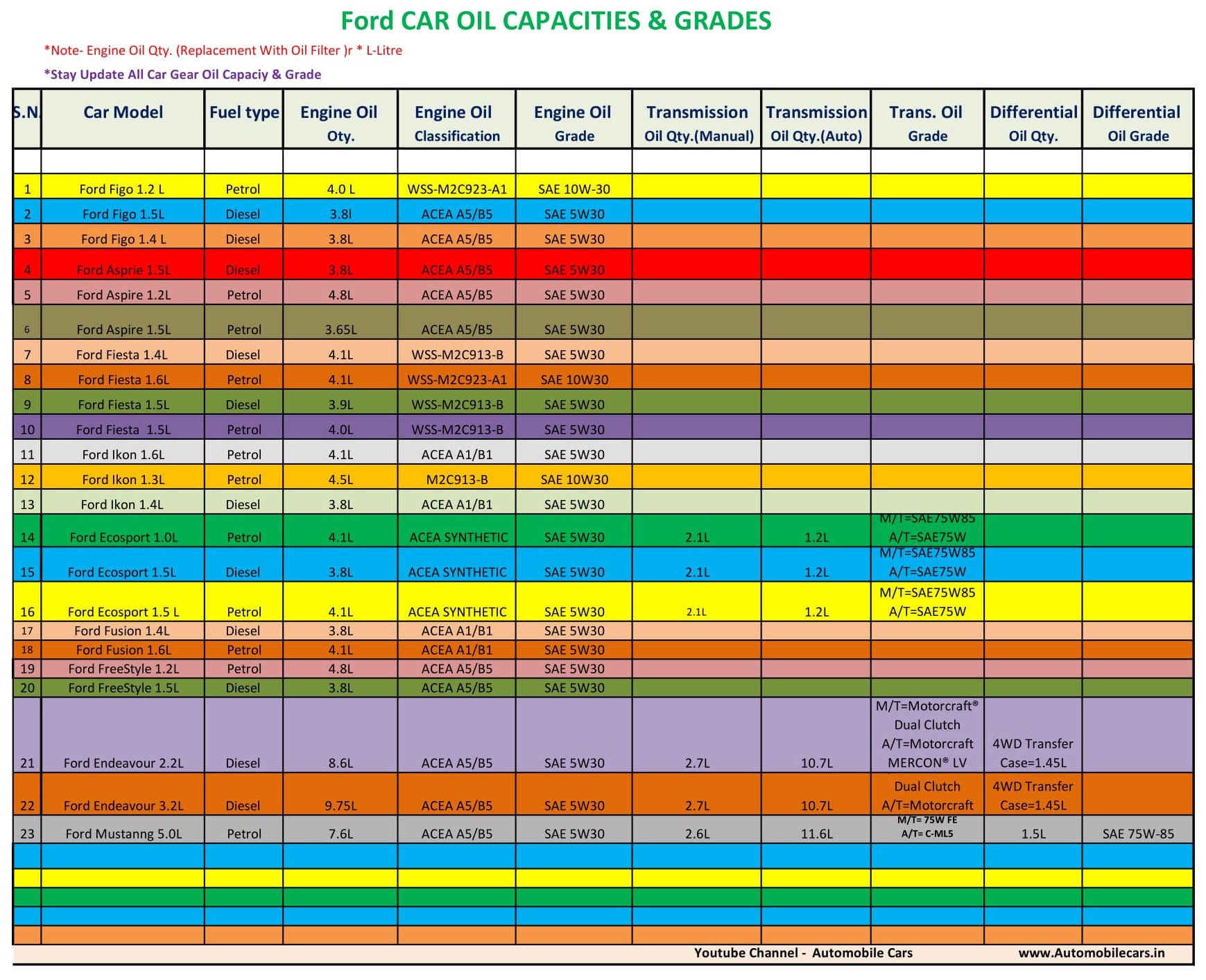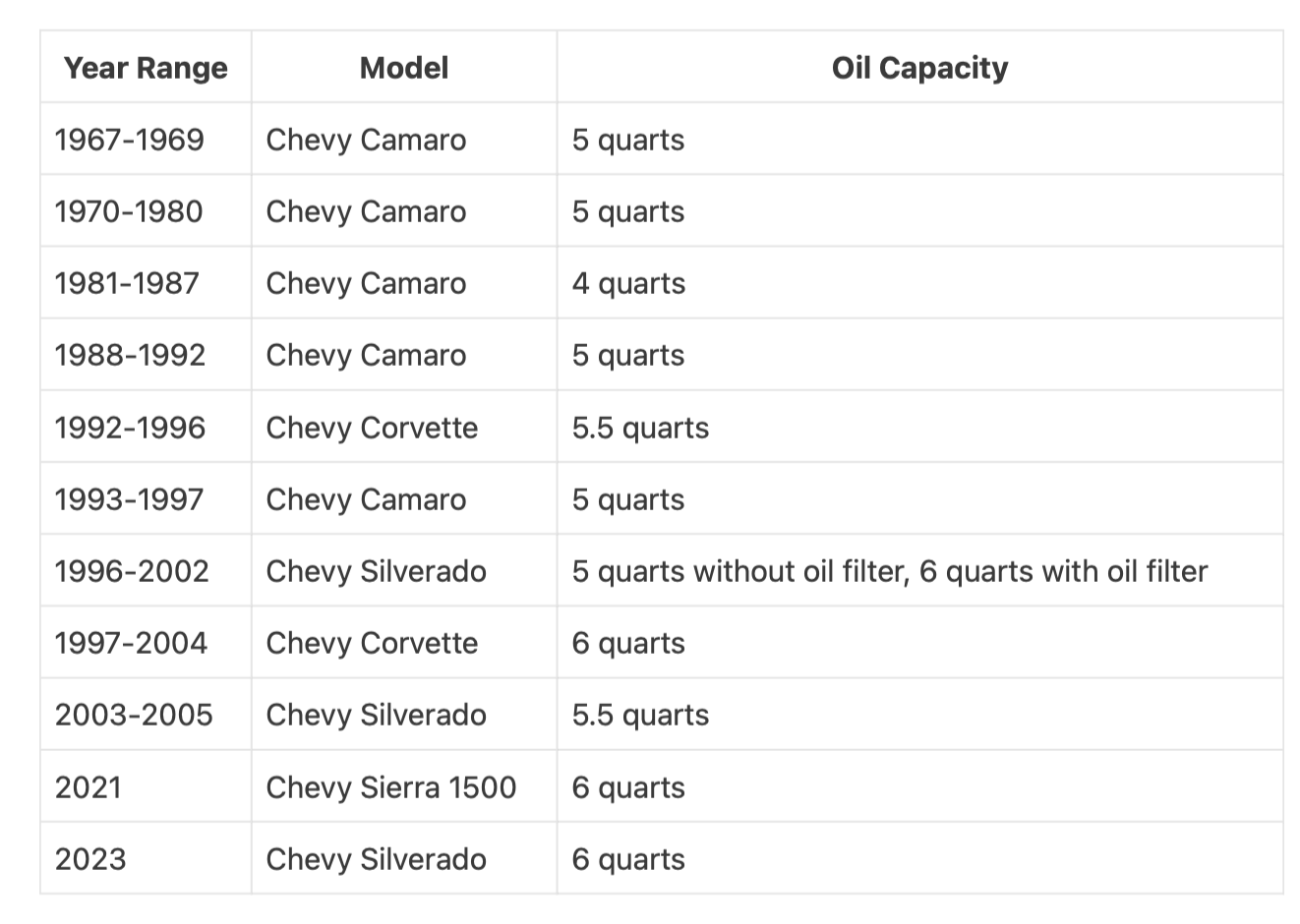Decoding the Ford 5.4 V8: Oil Capacity and Engine Longevity
The rumble of a Ford 5.4L V8 engine is a sound many truck and SUV owners cherish. But behind that powerful roar lies a complex machine that requires proper care and maintenance, starting with understanding the right amount of oil it needs. Knowing the correct Ford 5.4 V8 engine oil capacity is more than just a routine maintenance detail – it's essential for preserving the heart of your vehicle.
Misunderstanding or neglecting the 5.4 Triton engine's oil requirements can lead to a cascade of problems, from decreased performance and fuel efficiency to catastrophic engine failure. This comprehensive guide dives deep into the world of the Ford 5.4 V8 oil capacity, providing you with the knowledge to keep your engine running smoothly for years to come. We'll explore the specifics of oil capacity, the importance of regular oil changes, and address common issues related to oil consumption in this powerful engine.
The Ford 5.4L V8, often referred to as the "Triton," powered a variety of popular Ford vehicles, including the F-150, Expedition, and E-Series vans. Its robust design and impressive power made it a favorite among drivers who demand performance and reliability. However, the 5.4L Triton has also been known to experience certain issues, some of which are directly related to oil. Knowing the correct oil level is the first step in preventing these potential problems.
So, what exactly is the right Ford 5.4 V8 oil capacity? The answer depends on a few factors, including the specific model year and whether the engine is equipped with a 2-valve or 3-valve configuration. Generally, the 2-valve version holds approximately 6 quarts of oil, while the 3-valve version typically requires around 7 quarts. Always consult your owner's manual for the precise oil capacity recommendation for your specific vehicle.
Beyond knowing the quantity, understanding the importance of oil quality is equally crucial. Using the recommended oil viscosity and type – typically 5W-20 or 5W-30 – ensures proper lubrication and protection against wear and tear. Neglecting to use the correct oil can contribute to premature engine wear and potentially lead to costly repairs down the road. Furthermore, regular oil changes are vital. Changing your oil and filter according to the manufacturer’s recommended intervals helps remove contaminants and maintain optimal engine performance.
The Ford 5.4L V8 engine debuted in 1997. Maintaining the appropriate Ford 5.4 oil quantity ensures proper engine lubrication and cooling, protecting vital components from friction and heat. A common issue with the 5.4 Triton has been cam phaser problems, often exacerbated by low oil pressure or dirty oil.
A simple example of the importance of the correct oil capacity is this: imagine trying to run a marathon without enough water. Your body wouldn’t be able to function at its best, and you could suffer serious consequences. Similarly, an engine running with insufficient oil can’t perform optimally and may suffer severe damage. Conversely, overfilling the engine with oil can also cause problems, leading to foaming and decreased lubrication effectiveness.
One benefit of maintaining the proper Ford 5.4 V8 oil capacity is improved fuel efficiency. Proper lubrication reduces friction within the engine, allowing it to run more smoothly and consume less fuel. Another benefit is prolonged engine life. Sufficient, clean oil protects engine components, minimizing wear and tear, and extending the lifespan of your engine. A third benefit is improved engine performance. With optimal lubrication, the engine can operate at peak efficiency, delivering the power and performance you expect.
Advantages and Disadvantages of High Oil Capacity
| Advantages | Disadvantages |
|---|---|
| Better cooling capacity | Higher initial cost for oil changes |
| Increased lubrication in demanding conditions | Potential for increased oil leaks if seals are compromised |
One real-world example of the importance of proper oil maintenance is a 2005 Ford F-150 owner who experienced significant engine noise and reduced performance. Upon inspection, it was discovered that the oil level was critically low, leading to premature wear on engine components. After correcting the oil level and performing an oil change, the engine’s performance improved significantly, and the noise subsided.
One common challenge with the 5.4L V8 is oil consumption, particularly in older models. A potential solution is switching to a slightly higher viscosity oil, such as 5W-30, which may help reduce oil consumption in worn engines. However, it's essential to consult your owner's manual and possibly a mechanic before making any changes to your oil viscosity.
FAQ: What is the Ford 5.4 V8 oil capacity? As mentioned, consult your owner's manual for the exact capacity for your specific vehicle.
A helpful tip is to check your oil level regularly, especially before long trips. This simple check can help prevent costly repairs down the road.
In conclusion, understanding the Ford 5.4 V8 oil capacity and adhering to a regular maintenance schedule are critical for preserving the longevity and performance of this powerful engine. By ensuring your engine has the correct amount and type of oil, you can prevent potential problems, optimize fuel efficiency, and enjoy the reliable performance this engine is known for. From regular oil changes to addressing common issues like oil consumption, taking proactive steps to maintain proper lubrication is an investment in the health and lifespan of your vehicle. Neglecting these crucial steps can lead to costly repairs and a diminished driving experience. Be proactive, consult your owner's manual, and keep your Ford 5.4 V8 purring for years to come. Remember, a well-maintained engine is a happy engine.
Inking your story a guide to popular forearm tattoos for men
Decoding the 36l gm engine timing chain longevity and performance
Cozy chili nights the perfect dinner for two menu













